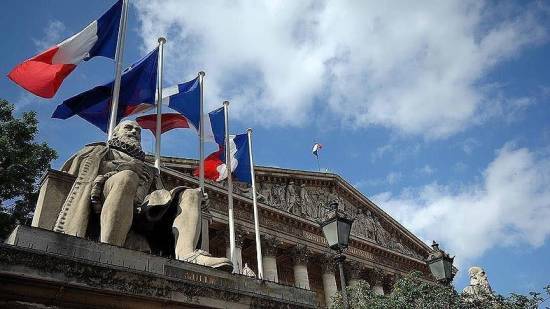History has a lot to say about the atrocious crimes committed by French colonial authorities in Algeria when it colonized the country for 132 years between 1830 and 1962.
At least five million people were killed and hundreds of thousands more injured during the course of the struggle for independence.
Other crimes included torture, murder, displacement of indigenous people, denial of the most basic rights, nuclear tests, the confiscation of fertile agricultural lands and the widely unknown looting of the North African country’s wealth and resources.
It took France about 70 years to fully control Algeria since occupying it on July 5, 1830.
Algerians only gained their independence from France in 1962, after fighting a ferocious war of liberation between 1954 and 1962 which claimed the lives of an estimated 1.5 million Algerians.
Algerian historians believe their land has continued to feed the French economy with its oil (discovered in 1956), gold, iron, coal and various minerals.
Seizing of Islamic endowments
Speaking to Anadolu Agency, Issa Ben Akoun, a professor of Algerian history at the University of Algiers, said Islamic endowments were among the Algerian heritage looted by French colonial authorities following a decision they issued on March 23, 1843 to confiscate Islamic endowments throughout Algeria.
According to Ben Akoun, France realized the value the Islamic endowments could have in becoming a source of income for it and decided to nationalize them.
He said the decision by the French authorities was made against the Treaty of Surrender signed between Hussein Dey and France on July 5, 1830, which included that Islamic sanctities and endowments not be violated.
1871 Indigenous People Law
In 1871, the French colonial administration issued the Indigenous People Law, which historians believe had a great impact on the plundering of Algeria's resources and wealth.
Most importantly, the law made Algerians dependent on the colonialists, whether they were French or Europeans, and granted ownership of fertile agricultural lands to European colonists (settlers) who came from France, Italy, Spain and Malta, granting Algerians working at the farms only one-fifth of the production.
Algerians, who then came to be referred to as “the indigenous,” had their movements restricted and could only legally travel with the permission of the colonial authorities.
This law, which remained in force until 1945, resulted in the exploitation and plundering of Algerians’ wealth, the confiscation of their agricultural lands, and their expulsion to arid and mountainous lands.
Ammar Ben Toumi, the lawyer of the Algerian National Liberation Front which led the armed struggle against French colonialism (1954-1962), said in testimony on Oct. 30, 2012 that the aim of the Indigenous People Law was to shackle Algerians and allow settlers to exploit and plunder the country's wealth.
Another law issued by the colonial authorities against Algerians was the Crémieux Decree in 1870, which separated the indigenous Algerians from the Jewish population in the country by granting French citizenship to the Jews, which consequently gave privileges to the Jews and subjected Muslim Arabs and Berbers to a second-class indigenous status.
At a conference held at the Emir Abdelkader University of Islamic Sciences on Feb. 21, 2021, researchers and historians estimated that more than 110 tons of Algerian treasures of gold and silver and more than $180 billion are in France.
Speaking during the conference, historian Faisal bin Said Talilani described French colonialism in Algeria as the most hideous and barbaric that humankind has ever known.
According to Talilani, looting by colonial France extended to the emirate’s palace in the Bab al-Jadid area of Algiers, estimated by historical data to have housed seven tons and 312 kilograms of gold, 108 tons and 704 kilograms of silver, alloys of dust and pure gold, precious stones, luxury clothes and other Algerian savings and foreign money.
Talilani believes what was looted at the time of the occupation was worth 80 million francs. In today’s estimates, the amount exceeds $80 billion, with some French estimates putting the figure at around $180 billion./aa
Additional Info
- عنوان تمهيدي: Looted resources by France worth billions of dollars


